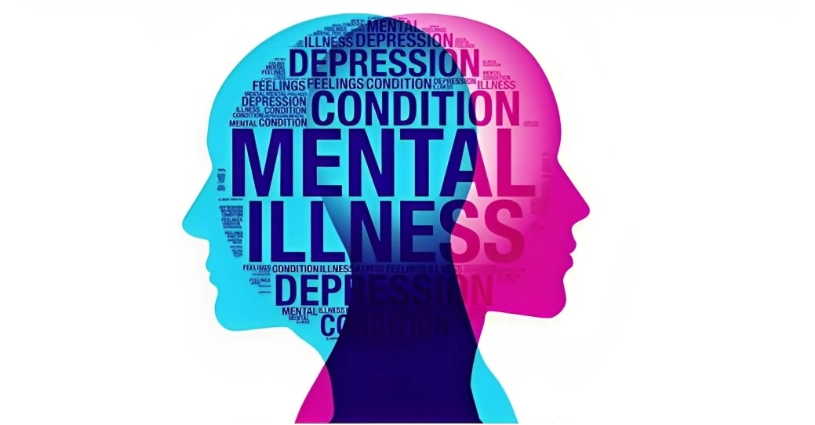In commemoration of World Mental Health Day, mental health experts and psychologists have come together to share 50 valuable tips aimed at promoting positive mental well-being.
As mental health concerns continue to be a global challenge, these expert-backed strategies offer practical guidance for individuals striving to enhance their mental resilience and overall quality of life.
1. Connect with supportive networks: Foster strong relationships; social connections act as a vital buffer against mental health issues.
2. Prioritize adequate sleep: Ensure 7-9 hours of sleep; quality rest is fundamental for mental and emotional balance.
3. Embrace mindfulness: Practice meditation and yoga; mindfulness techniques alleviate stress and enhance focus.
4. Regular exercise: Engage in physical activities; exercise releases endorphins, promoting a sense of well-being.
5. Balanced nutrition: Maintain a healthy diet; adequate nutrients positively impact mental health.
6. Limit screen time: Reduce social media exposure; excessive use can impact self-esteem and mental peace.
7. Professional support: Seek therapy when needed; mental health professionals provide valuable coping strategies.
8. Stress management: Learn stress-reduction techniques; deep breathing and relaxation exercises are effective.
9. Volunteer for community service: Contributing to society boosts self-esteem; consider volunteering for a cause.
10. Set realistic goals: Break tasks into achievable goals; celebrate accomplishments, no matter how small.
11. Practice gratitude: Regularly express gratitude; focusing on positives enhances mental well-being.
12. Engage in creative pursuits: Pursue hobbies; creative activities offer a sense of achievement and joy.
13. Limit alcohol and substance use: Avoid excessive consumption; substances exacerbate mental health problems.
14. Establish boundaries: Learn to say no; setting limits ensures personal well-being.
15. Practice self-compassion: Be kind to oneself; self-love enhances mental resilience and emotional strength.
16. Journal your thoughts: Maintain a journal; expressing feelings on paper can provide emotional release.
17. Limit news exposure: Reduce exposure to negative news; stay informed but avoid excessive media consumption.
18. Establish a daily routine: Structure your day; routines offer stability and a sense of purpose.
19. Laughter therapy: Engage in laughter; watch comedies or spend time with friends who make you laugh.
20. Learn to delegate: Share responsibilities; delegate tasks to reduce overwhelming feelings.
21. Practice forgiveness: Let go of grudges; forgiveness promotes emotional healing and mental peace.
22. Stay hydrated: Drink water; hydration impacts mood and cognitive functions positively.
23. Challenge negative thoughts: Identify and challenge negative thinking patterns with positive affirmations.
24. Engage in creative outlets: Express creativity through arts, writing, or music for emotional expression.
25. Practice deep breathing: Incorporate deep breathing exercises for relaxation and stress reduction.
26. Cultivate patience: Develop patience; practice it in daily interactions to reduce frustration and stress.
27. Mindful eating: Eat mindfully; savor each bite to enhance both digestion and mindfulness.
28. Nature connection: Spend time outdoors; nature has a calming effect on the mind and reduces stress.
29. Stress-relief techniques: Explore techniques like progressive muscle relaxation or aromatherapy for relaxation.
30. Limit caffeine intake: Reduce caffeine consumption; excessive caffeine can increase anxiety levels.
31. Digital detox: Take periodic breaks from digital devices to refresh your mind and reduce screen time.
32. Establish healthy boundaries: Set limits in relationships; ensure your emotional well-being is respected.
33. Cultivate a hobby: Pursue hobbies that bring joy and fulfillment, offering a healthy escape.
34. Embrace solitude: Find moments of solitude for self-reflection and relaxation; it enhances self-awareness.
35. Practice active listening: Cultivate empathy by actively listening to others, fostering meaningful connections.
36. Set realistic expectations: Avoid setting unrealistically high standards; realistic expectations reduce undue pressure.
37. Stay curious: Cultivate curiosity; learning new things keeps the mind engaged and promotes mental agility.
38. Travel mindfully: When traveling, embrace the experience fully; immerse in local culture for a refreshing perspective.
39. Celebrate achievements: Acknowledge personal milestones, no matter how small; celebrate your victories.
40. Encourage positive self-talk: Replace self-criticism with self-compassion; positive self-talk enhances self-esteem.
41. Engage in acts of kindness: Small acts of kindness boost both the giver’s and receiver’s mental well-being.
42. Limit perfectionism: Accept imperfections; striving for perfection often leads to undue stress.
43. Nurture healthy relationships: Surround yourself with positive, supportive people; healthy relationships are vital.
44. Dance or exercise: Movement activities release endorphins, promoting a sense of joy and accomplishment.
45. Practice progressive muscle relaxation: A relaxation technique involving tensing and relaxing muscle groups for stress relief.
46. Unplug before sleep: Avoid screens an hour before bedtime; it promotes better sleep quality.
47. Foster a sense of purpose: Engage in activities that align with your values; a purposeful life enhances mental well-being.
48. Express emotions creatively: Use art, writing, or music to express complex emotions; creativity aids emotional release.
49. Maintain a gratitude jar: Daily jot down one thing you’re thankful for; the jar serves as a reminder of positivity.
50. Stay resilient: Cultivate resilience; view challenges as opportunities for growth and learning.
